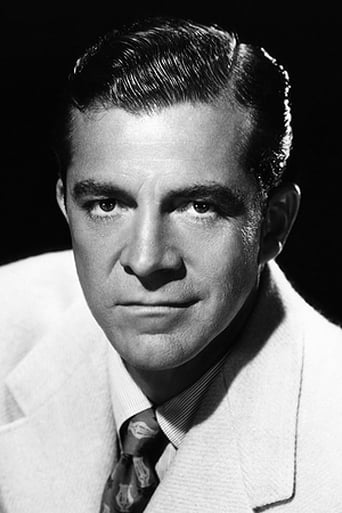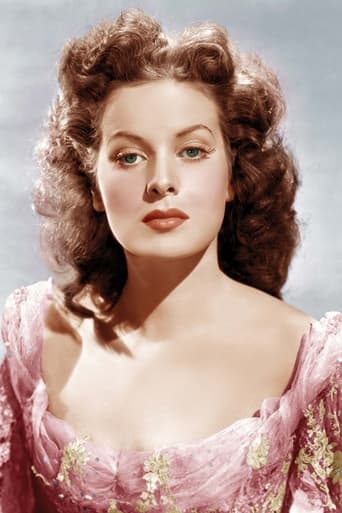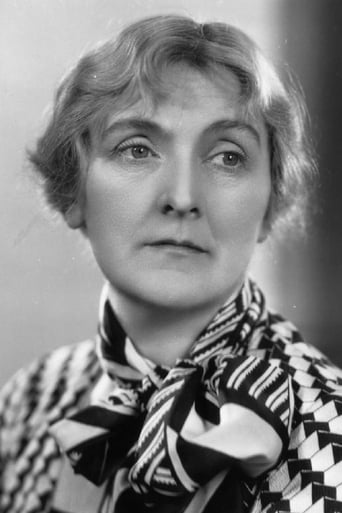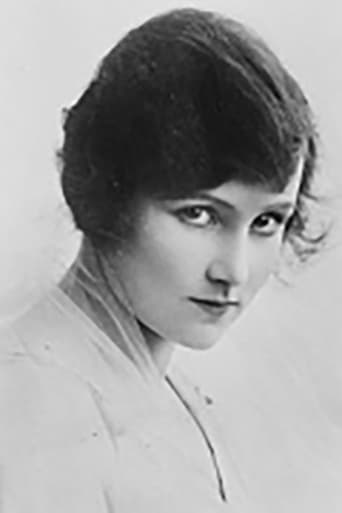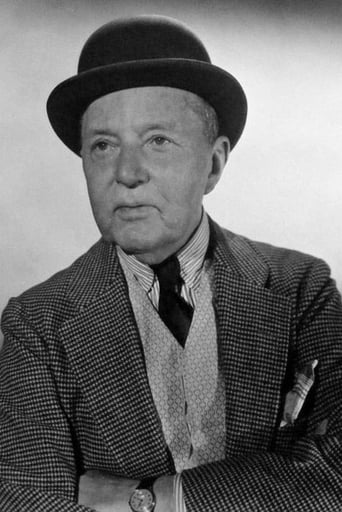StunnaKrypto
Self-important, over-dramatic, uninspired.
Infamousta
brilliant actors, brilliant editing
Ezmae Chang
This is a small, humorous movie in some ways, but it has a huge heart. What a nice experience.
Quiet Muffin
This movie tries so hard to be funny, yet it falls flat every time. Just another example of recycled ideas repackaged with women in an attempt to appeal to a certain audience.
HotToastyRag
I was a bit predisposed to like this movie, since I have a big crush on Dana Andrews. If you actively dislike him, you should stick to Jamaica Inn or Sentimental Journey instead. In The Forbidden Street, he plays a wildly attractive artist who comes from the wrong side of the tracks but captures proper Maureen O'Hara's heart anyway. See why I liked it?Maureen's family disapproves of Dana, and not just because he's poor. He literally lives in the slums, which are visible from Maureen's window. She knows how terrible "the forbidden street" is, but since it's Dana Andrews, she throws everything away and moves to the slums after they're married. As she soon finds out, having a handsome hubby doesn't make everything perfect. Her neighbors hate her, she's estranged from her parents, Dana treats her badly, and they're running out of money. What's a wife to do?Well, you'll have to watch the movie to find out what happens-and it's extremely exciting! While I wish there were a bit more twists and turns to the plot, overall it's an entertaining movie. The ending will definitely make you think. I'm still talking about my interpretation days later!
clanciai
What a wonderful film this is! It is difficult to catalogue all its vast variations of deserts, with sudden turn of events and charming details constantly renewing and refreshing the story, which is like a Dickens novel. Maureen O'Hara is always good but here better than ever, while Dana Andrews takes you by surprise with this virtuoso performance totally out of his ordinary style, vying in charm with Robert Donat; while the prize goes to Sybil Thorndike, who makes a really frightening witch with more than one bag of evil up her sleeve, which she uses with calculation and effective impact.It's really an environmental film depicting a slum area with exciting intrigue and characters and fascinating idylls of the gutter. It's related with another environmental London film of the same time, "London Belongs to Me" with equally convincing documentary rendering of local life in London town, but here the events take place long before the turn of the century - Bernard Shaw is mentioned as a rising star in the beginning of his career.The miracle of the story is how a tragedy is turned to its opposite. A failed painter leaves behind the result of his secret hobby work, making puppets, and these turn out to be his real masterpiece. A really hopeless tragedy of bleak dreariness with no way out is miraculously turned into comedy by his puppets coming alive. The process of this U-turn of fate is completely natural, and a tragedy of human decay, failure, alcoholism and dishonour is suddenly reversed into a cheerful comedy - the real comedian is Maureen O'Hara's helpful brother, who understands things his own way. The end of it is how the dreadfully sultry slum turns into a wonderland of idylls and charm in spite of all, and there, ultimately, after all the heartbreaks, the heart nevertheless will remain.(I wrote this review previously, but it was apparently lost in a power cut. Maybe it can be retrieved. If not, here is what I could do to recreate it.)
MartinHafer
When Dana Andrews appeared on the screen, I was shocked. Shocked because out of his mouth came the strangest British voice--strange because it obviously was dubbed! The voice and the face just don't go together at all! And, combined with the bohemian hair and goatee, he's definitely an actor out of his element!! Maureen O'Hara plays the title character. She is a lower upper-class girl whose home overlooks the Mews--a stretch of slum apartments surrounding the stables. She falls in love (or, it's more like a girlish infatuation) with an artist (Andrews) and runs off with him. Her parents are angered, as he is from the lower class--so they cut her off. O'Hara assumes they'll live off love and be content, but that doesn't last long. Andrews drinks and has little ambition--and soon the marriage is all but over. When they argue one day, he falls off the stairs to his death--and a neighbor (a decrepit old crow) sees it and blackmails her. This is an interesting twist, but also made no sense, as the police almost certainly would not have believed the blackmailer and O'Hara was a lady. But, despite this and no evidence it was anything other than an accident (which it was), she pays the old bat and is forced to stay in the Mews--and she's being bled dry in the process.Later in the film, a really, really goofy thing occurs--a 10 on a goofiness scale. Dana Andrews appears once again--but he's playing a different character! This one looks like the traditional Andrews and it is really his voice--along with a somewhat British accent...somewhat. This Andrews is an out of luck actor who drinks. He asks her what she bothers to stay in this dump--a wonderful and very insightful question! He soon helps her rid herself of the blackmailer--using something she lacks--common sense! Soon, the pair begin cohabiting--him assuming the role of her new husband (though the film is cagey about whether or not they sleep together--it seems they probably and inexplicably did not).One of the first things Andrews #2 does is discovers the dead husband's project--a set of beautiful puppets (which, by the way, O'Hara hated and discouraged Andrews #1 from making). He suddenly shows a lot of ambition and sobriety--and learns to be an expert puppeteer. As a result of his new fame, the two are able to have a nice life due to his great success. And, in the process, the Mews is transformed into a far less crappy neighborhood. Some time later, when O'Hara sees her brother, she pretends (why?!?!) that Andrews #2 is Andrews #1...whatever. Will the ruse be discovered? Will anyone care? This film features the horrible cliché of identical strangers as well as no reasonable reason for O'Hara remaining in the Mews and paying blackmail. When a story relies on a character behaving this stupidly, it's a bad film unless it is supposed to be a comedy--and this was no comedy (aside from Andrews' dubbed voice...THAT was funny!). Despite good acting and some nice Twentieth-Century Fox polish, the film really was a silly and convoluted mess because the script was often dumb.
theowinthrop
This film has not appeared on television since the 1970s, when it appeared as "Forbidden Street". It is a little film with some melodrama in it regarding the death of Dana Andrews' first character (who falls out of a window) and the blackmail of Maureen O'Hara by Sybil Thorndike, but it is really of interest in the second half when Andrews (in his second role) uses a set of hand carved puppets to change this street in the slums into a thriving middle class neighborhood. An odd way to prosperity, but interesting nonetheless.Sybil Thorndike was a remarkable actress, whose film career is not as strong as the other actors and actresses of her generation who reached stardom. Her performances on film go back to the silent films (of England), but in sound films she appeared in good cameo parts, but she never had a set of critically acclaimed leading roles like Olivier, Richardson, Redgrave, Coward, Guilgud, Evans, Ashcroft, or Rutherford. Ashcroft and Rutherford also had supporting roles in film too but both actresses had "Oscars" to show for these, as did Olivier, Guilgud, and even Coward. Yet Thorndike did get recognition for her acting with a title as "Dame" Sybil Thorndike (like "Dame" Edith Evans, and "Dame" Peggy Ashcroft). Today, to catch her performances, one has to see her in MAJOR BARBARA as the Salvation Army General or in THE PRINCE AND THE SHOWGIRL as the Queen Mother (Lawrence Olivier's mother-in-law). Both roles certainly give you an idea of her range as an actress in comedy, but FORBIDDEN STREET shows how she was in a dramatic role - as a elderly hag who blackmails Maureen O'Hara into tolerating her continuous presence, and who actually just wanted O'Hara to love her as a mother (or so she claims). It is an odd role, and she handles it with great ability. One wishes that sound had existed in the films of her youth (the silent period). At that time Thorndike played the role of Ophelia opposite John Barrymore's Hamlet. It would have been worth seeing. Let us hope that FORBIDDEN STREET is released again on dvd or video, so we can see Dame Sybil in a dramatic part again.
